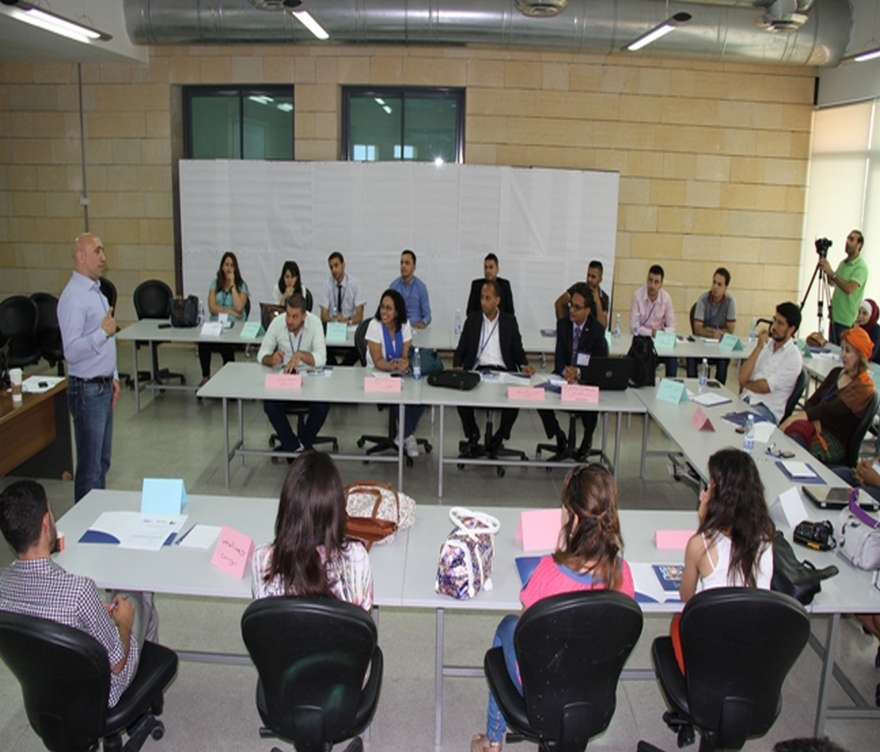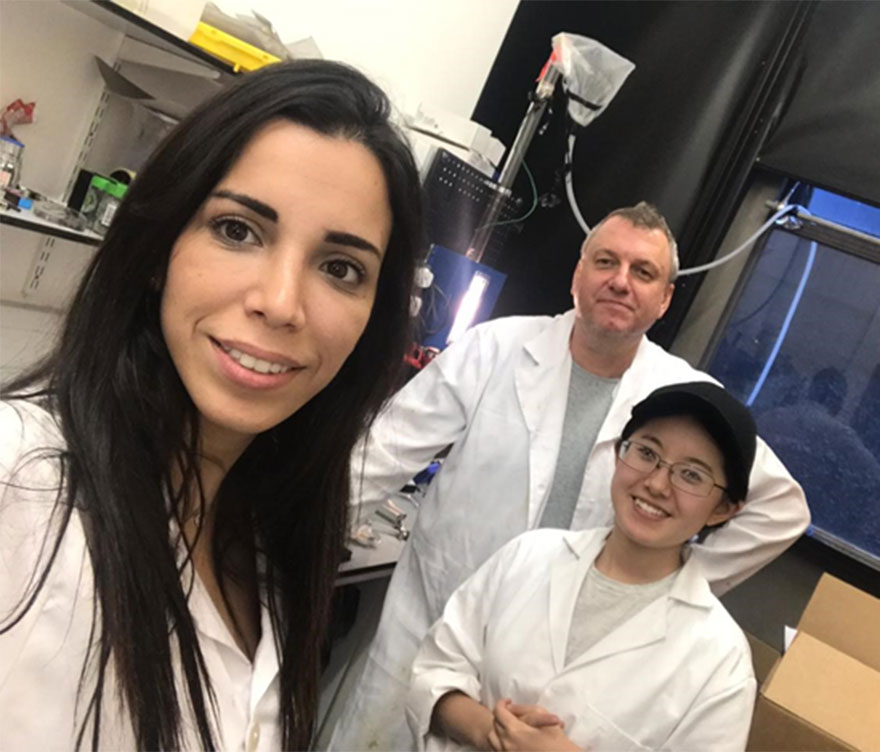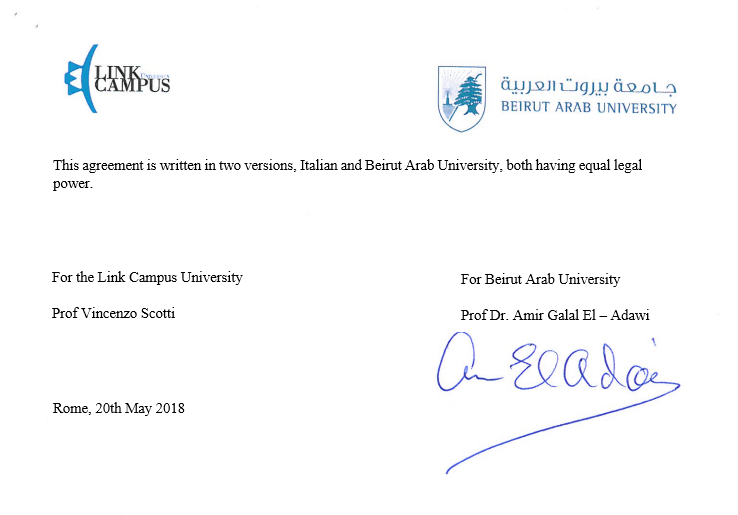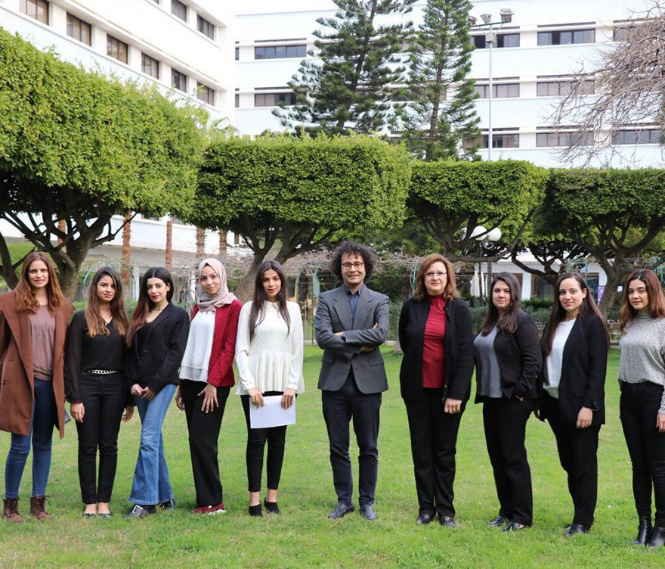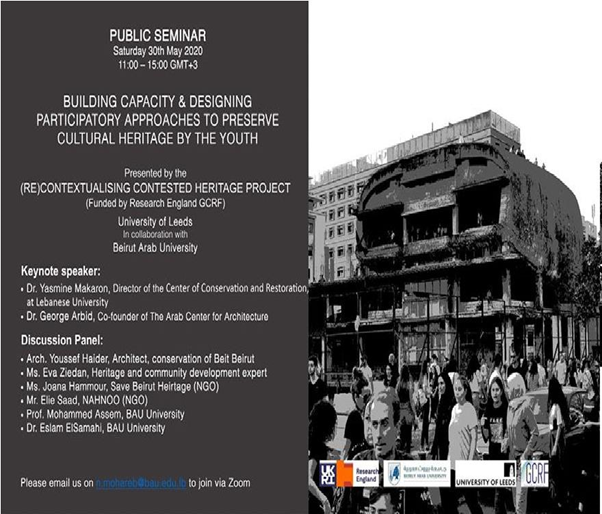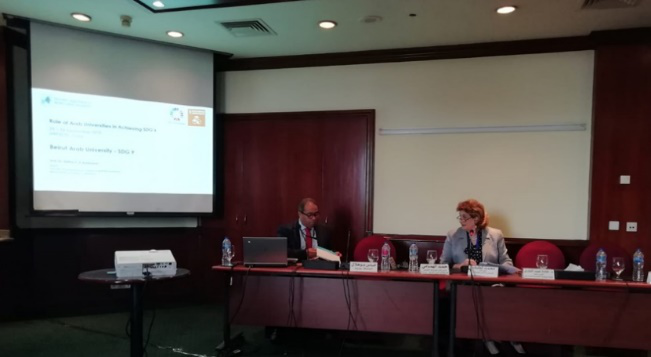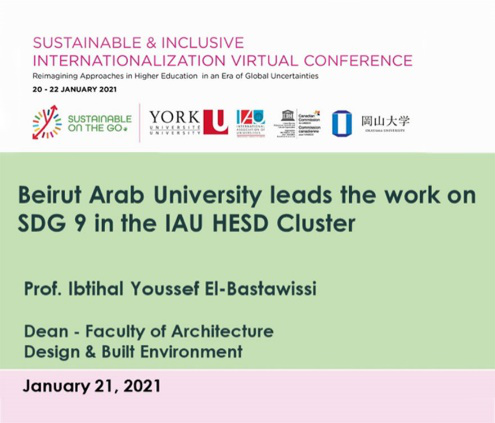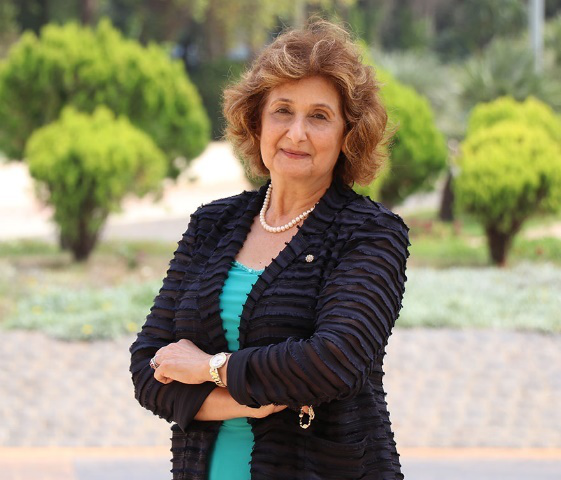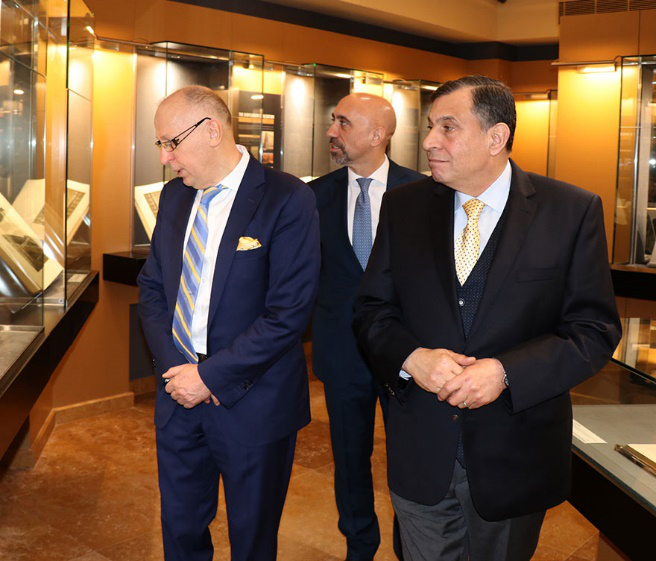Participation in International Collaboration on Gathering/ Measuring SDGs’ Data
For the fourth consecutive year, the Human Rights Center at BAU concludes the “Fourth Regional Summer Session” on the “Implementation of the Human Rights Agreements in National Systems”, in collaboration with the Arab Academic Network for Human Rights, and the Raoul Wallenberg Institute for Human Rights and International Humanitarian Law.
The event which was hosted 34 students from eight Arab countries, namely Lebanon, Jordan, Palestine, Egypt, Iraq, Algeria, Morocco and Tunisia.
The course ran for 10 days, during which staff members at BAU, the Jordanian University and the University of Algeria, in addition to a group of experts in the field, such as Jordanian ex-Minister of Justice, Dr. Ibrahim Al Jazi, and Judges Yehia Ghabboura and Khaled Akkari, presented lectures. Various topics were dealt with, most important of which is the current state of human rights in the Arab World, the status of International Agreements in National Systems, Women’s Rights, Children’s Rights, Enforced Disappearances, and the Rights of Migrant Workers.
Research & development is in action for defining the optimal conditions and technologies to decontaminate Lebanese zaatar mixtures through a partnership with the University of Glasgow and Beirut Arab University.
Dr. Ian WATSON and Dr. Nada EL DARRA conducted research on the optimal conditions and technologies to decontaminate Spices under the project “Strengthening Job Creation and Creativity in the Agri-food sector in Lebanon through technology transfer and skills training” funded by Italy and implemented by UNIDO in partnership with the Ministry of Industry and in collaboration with the Ministry of Agriculture in Lebanon.
Zaatar (Origanum Syriacum) is a traditional edible plant with high demand within Lebanon and in the surrounding Middle Eastern countries. In the age of global trade and high safety measures; decontamination is a critical process to ensure safe Zaatar consumption by reducing the load of microorganisms.
Once optimized, the decontamination of Zaatar products will facilitate export market access and international trade for Lebanese zaatar producers.
Agreement and cooperation between BAU and Link University Campus of Italy to exchange resources, human experiences and scientific research for Health and Well-being.
The Faculty of Health Sciences - Department of Nutrition & Dietetics at Beirut Arab University collaborated in the international research project that was held in partnership with University of Oxford (UK) and Gunma Paz University (Japan).
This project resulted in publishing a journal paper entitled “Association between Sarcopenic Obesity (SO) and Metabolic Syndrome (Mets) in Adults: A Systematic Review and Meta-Analysis” at the Current Cardiology Reviews (Q2 peer-review journal).
The research aimed to assess the prevalence of Mets among individuals with Sarcopenic Obesity (SO), and to determine if the latter may increase the relative risk of the former. The major finding of the study was that no higher prevalence of Metabolic Syndrome (Mets) among individuals with Sarcopenic Obesity (SO) when compared to those with obesity only, nor a significant association between Sarcopenic Obesity (SO) and a higher risk of Metabolic Syndrome (Mets) was found.
Faculty of Architecture- Design and Built Environment, Beirut Arab University (BAU) in its second collaboration with University of Leeds (UK) are inviting you to the online public seminar ‘Building Capacity & Designing Participatory Approaches to Preserve Cultural Heritage by the Youth’ as a part of the funded project with the title ‘(Re)contextualizing contested heritage project’, #ReConHeritage, funded by Research England GCRF.
Prof. Dr. Ibtihal Youssef El-Bastawissi represented Beirut Arab University at “the regional meeting on the role of Arab universities in achieving the Sustainable Development Goals” workshop, which was held under the patronage of Minister of Higher Education and Scientific Research in the Arab Republic of Egypt, Dr. Khalid Abdul Ghaffar.
The workshop was attended by a large number of Arab universities from Egypt, Mauritania, Sudan, Oman, Yemen, Syria, Iraq, Lebanon, Jordan and Palestine, as well as representatives of UNESCO regional offices in Egypt and Beirut.
Prof. Ibtihal El-Bastawissi presented the projects and activities carried out by Beirut Arab University in supporting the 17 sustainable development goals SDGs set by the United Nations focusing on Goal 9 since BAU was selected last year to represent and lead SDG 9 (industry, innovation and infrastructure) in the International Association of Universities (IAU) HESD (Higher Education and Research for Sustainable Development) Cluster.
Prof. El-Bastawissi also stressed within its presentation on how BAU community based projects, initiatives and research activities have been mapped to Goal 9 targets including supporting Sustainable and resilient infrastructure, promoting inclusive industrialization and enhancing scientific research.
The Dean ended up by highlighting on the new initiatives undertaken by Beirut Arab University to achieve the sustainable development goals as proposed in its strategy.
Beirut Arab University, represented by Prof. Ibtihal Y. El-Bastawissi (Dean, Faculty of Architecture – Design & Built Environment) and Siam University, represented by Prof. Pornchai Mongkhonvanit (President of Siam University) have been invited by the IAU (International Association of Universities) to share their experience in engaging with the Cluster and sustainability in the Networking Session in the York Virtual Conference on Sustainable and Inclusive Internationalization.
The conference was organized by York University – Canada, in partnership with the IAU, Okayama University – Japan, and Canadian Commission for Unesco. The conference took place on 20-22 January 2021, while the Networking Session that has been hosted by the IAU was on 21 January 2021. In her presentation, Prof. El-Bastawissi focused on achieving the SDG goals generally and SDG9 particularly through education, research, conferences, new labs, innovation and community-based projects as well as wide-spreading BAU Journals, and developing partnerships with other universities.
Following this successful intervention in the conference, IAU represented by Hilligje van't Land, the Secretary General, welcomed BAU and Siam Universities to share concrete examples of community engagement focusing on social impact to be presented by IAU during the University World News Webinar entitled “Building Social Impact and Civic Engagement on 27 January 2021.
Prof. El-Bastawissi shared with the IAU seven examples on BAU Community Engagement and on the university’s role in promoting sustainable urban development.
The International Association of Universities IAU has launched a Global Cluster on Higher Education and Research for Sustainable Development (HSED) to advocate for the Key Role that higher education institutions play in achieving agenda 2030. The global endeavour directly engages universities in addressing all 17 sustainable development goals SDGs.
Beirut Arab University was selected to represent and lead SDG 9 Industry, innovation and infrastructure that aims mainly to promote inclusive and sustainable industrialization, enhance scientific research, and support economic development and human well-being, with a focus on affordable and equitable access for all.
The Dean of the Faculty of Architecture, Design & Built Environment Professor Ibtihal El- Bastawissi is the BAU Institutional Coordinator at the IAU Global Higher Education Cluster. The IAU HESD Cluster consists of 16 lead universities, one for each SDG; IAU leads the work on SDG 17 on global partnerships.
The lead universities, which are based in all world regions, will work with ‘satellite’ universities to advance a particular SDG, all the while ensuring synergies among all goals.
The President of Beirut Arab University Professor Amr Galal El- Adawi hosted the Ambassador of Ukraine to Lebanon H.E. Mr. Ihor Ostash at Beirut Campus. Professor El Adawi informed the Ambassador about the latest aspects of development and modernization at the University, which paved the way for several future cooperation and collaborations between the University and the Universities of Ukraine.
